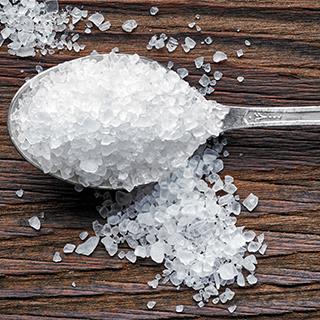
Limiting salt intake remains an important lifestyle change for adults with elevated blood pressure, based on a recent study confirming the link between high salt intake and increased risk of death.
Published in the Journal of the American College of Cardiology, this study looked at the impact of salt intake on mortality risk in adults with elevated blood pressure. It’s well established that too much salt can have a negative impact on health, increasing risk for high blood pressure, heart attack, stroke and kidney disease. As a result, the U.S. Dietary Guidelines for Americans recommend that everyone over the age of two limit salt intake to less than 2,300 mg/day. Guidelines also recommend that adults with higher cardiovascular risk, like those with heart disease, high blood pressure or adults over 51 further reduce sodium intake to 1,500 mg daily. Experts hope that by reducing salt intake across the United States, we can help reduce risk for heart disease—the No. 1 killer of Americans.
The problem, however, is that some studies suggest that restricting salt too much may also have negative effects on our health. These findings have sparked much controversy around exactly how much salt Americans should be consuming.
To further investigate, researchers analyzed data from two phases of the Trials of Hypertension Prevention Follow-up Study. Conducted from 1987–1990 and 1990–1995, the study included more than 3,000 U.S. adults with elevated blood pressure between the ages of 30 and 54. Participants were followed for up to three years, during which time they provided multiple 24-hour urine samples to track sodium intake. With data from the National Death Index, researchers recently obtained mortality data on participants roughly 24 years later.
After more than two decades, researchers found that roughly 17% of study participants had died. However, analysis showed that the higher participants’ sodium intake was during the study period, the greater their 20-year mortality risk was. For example, adults consuming less than 2,300 mg of sodium a day had significantly lower mortality risk than those with higher sodium intake. Overall, each 1,000 mg/day increase in sodium intake was associated with a 12% increase in mortality risk. Authors also note that having a low sodium intake was not associated with an increase in mortality risk, as some studies have found.
A major strength of this study, according to authors, is that sodium intake was assessed with urine samples during both trial phases. This is the “gold standard” when it comes to sodium assessment and is more reliable than dietary questionnaires, which are self-reported.
According to authors, findings confirm the benefits of limiting sodium intake in adults with elevated blood pressure. Findings also support current guidelines, which recommend limiting daily sodium intake to less than 2,300 mg a day to promote better health. With additional research, authors hope findings will help resolve controversy around sodium intake and provide clarity on dietary guidelines.
Read the full article in the Journal of the American College of Cardiology.
Learn about CardioSmart's editorial process. Information provided for educational purposes only. Please talk to your health care professional about your specific needs.